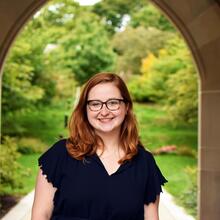On March 8—International Women’s Day—Arturo Sosa, S.J., the superior general of the Jesuits, announced the creation of the Commission on the Role and Responsibilities of Women in the Society of Jesus. Father Sosa explained in a statement that the commission is the next step in the Society’s efforts to more fully include and collaborate with women, following previous decrees from General Congregations (where Jesuits from all over the world meet after the death of a superior general, a meeting considered the highest authority in the Society of Jesus). A task force assembled by Father Sosa in 2020 also recommended the formation of a commission of this nature.
The Commission on the Role and Responsibilities of Women in the Society of Jesus is made up of 10 members: six women, three Jesuits and one lay man. According to the statement from Father Sosa, “the Task Force developed an excellent proposal about the character, composition, and manner of selecting the members of the commission” and then potential candidates were suggested by the presidents of the Conferences of Major Superiors. Members represent eight different countries and will work together over the course of three years before they present a final report and evaluation to Father Sosa, who will determine next steps for the Society of Jesus based on their recommendations.
On International Women’s Day, Arturo Sosa, S.J., the superior general of the Jesuits, announced the creation of the Commission on the Role and Responsibilities of Women in the Society of Jesus.
One of the six women named to the commission is Donna Andrade, who has worked at Fairfield College Preparatory School for more than 40 years and now serves as the school’s dean of mission and ministry. She told America that she was “elated” to be selected as a member of the group and acknowledged the many “stellar” women educators she knows in the Jesuit network.
In 1987, Ms. Andrade began the United States’ first diversity program for Jesuit high schools at Fairfield Prep. Eventually, that work expanded, and by 1994 she was helping to run a national diversity conference for Jesuit high school students.
Ms. Andrade is excited to see meaningful representation fostered by the new initiative; the majority of the commission’s members are women, and they come from such different places and cultural contexts. “It’s not just lip service,” she said. “The representation is impressive. And it’s not only impressive to me as a woman. It’s exciting to me as a Jesuit educator that there are people from all over the world, that I get to meet them and learn from them, that I get to experience their contexts.”
She remarked that history will be important in the conversations she and her colleagues on the commission share over the next three years. “All of this is an evolutionary process. My biggest thing is to make sure we don’t lose sight of that. This is the first time this question has been asked in this way, but we can only start to look at it this way because of things that have happened before us historically,” she said. “My greatest hope for us is that we don’t lose sight of our history.”
“It’s not just lip service,” Donna Andrade said. “The representation is impressive. And it’s not only impressive to me as a woman.
As a Black woman with a career-long commitment to Catholic education, Ms. Andrade recognizes that she cannot separate her identities. “There are all of these intersections.... I want to make sure we look at all of those intersections that affect women’s lives. And as far as the church is concerned, to look at those structures that impede our ability to break the glass ceiling.”
Ms. Andrade believes that the commission’s work can be a signal to the wider church about the future of women’s leadership and contributions. “I think it might mean some honest reflection and discernment about those institutional structures and policies that can perpetuate sexism,” she suggested. “A lot of what people might want to attack as far as the role of women in a patriarchal structure like our church is highly politically charged and can be very divisive. I’m particularly concerned about having those conversations in a way that doesn’t divide us but unites us.”
Father Sosa’s announcement detailed objectives for the work of the commission. The first is to return to Decree 14, titled “Jesuits and the Situation of Women in Church and Civil Society,” from the Jesuits’ 34th General Congregation and to evaluate how relevant it continues to be to the contemporary world—and how well its mission has been carried out in the Society’s apostolates. A review is necessary and important, since, as the superior general writes, “the Decree was promulgated in 1995. The world has changed substantially since then, including the situation of women.”
The other objectives call for a review of the Society’s structures of collaboration with women, recommendations to “strengthen the mission of the Society with the active participation of women” and encouragement of “mutual respect, care and solidarity between men and women.”
Father Sosa signaled his and the Society’s deep commitment to the inclusion of all women by calling it a matter of “reconciliation,” of bringing the Jesuits’ works closer to God’s desire for justice in society. As he put it in his statement, “Addressing the issue of women’s participation from the perspective of collaboration in mission is an opportunity to understand more deeply where the Spirit is leading us and to give greater vitality to our life, which is deeply committed to the mission of reconciliation and justice in all our apostolates.”








